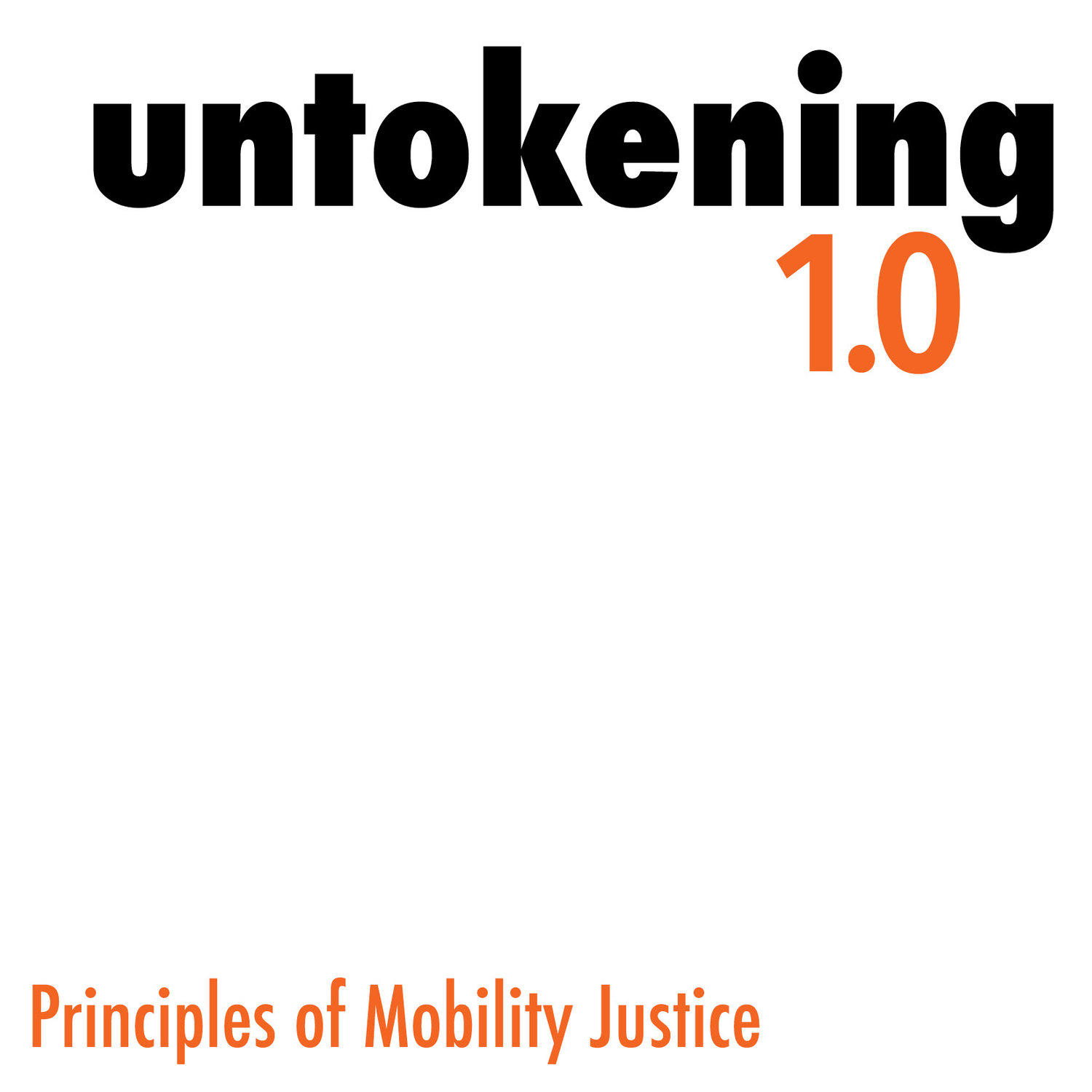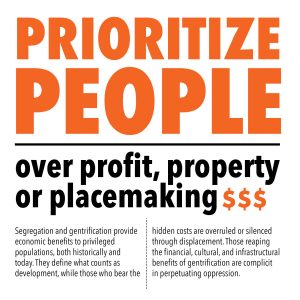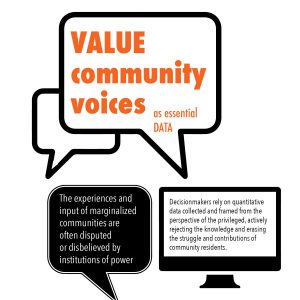by Katherine Vega – BFC Board Director
[su_button url=”https://squareup.com/store/bike-fort-collins” target=”blank” background=”96d3bd” color=”#000000″ size=”8″ center=”yes” radius=”5″ desc=”Click Here to Support Bike Fort Collins”]GIVE TODAY[/su_button]
 There were two things I loved most growing up as a kid in Lincoln Heights, a neighborhood 10 minutes from downtown Los Angeles. The first was going to Lincoln Park with my mom and dad and the second was playing games with my neighbors after school. We lived in a small cluster of homes tucked between two clothing factories (but everybody knew they were sweatshops) on Main Street, one of the busiest streets in the neighborhood. Surrounding us were a variety of warehouses, car shops, and factories like El Dorado, a tortilla factory we’d visit at least once a week. There was a liquor store just down the block where I’d get Big Stick popsicles and a small market across the street where we could get bread and peanut butter. None of us were allowed to play in the front of the houses unless someone was watching us. It wasn’t just to protect us from the speeding cars, buses, and 18-wheelers on the 4-lane wide road, but also to keep an eye on any potential danger in the neighborhood from local drug addicts, winos, strangers, and also drive-bys on occasion. I was only a kid so I didn’t understand why I had all these strict rules to follow. I just wanted to play with my friends and run around until dark. So every night, we’d rush through our homework and knock on each other’s doors to get the game started. That car-packed driveway and dusty backyards made one big playground where we’d run, pedal, and climb until our moms yelled for us to come in for the night.
There were two things I loved most growing up as a kid in Lincoln Heights, a neighborhood 10 minutes from downtown Los Angeles. The first was going to Lincoln Park with my mom and dad and the second was playing games with my neighbors after school. We lived in a small cluster of homes tucked between two clothing factories (but everybody knew they were sweatshops) on Main Street, one of the busiest streets in the neighborhood. Surrounding us were a variety of warehouses, car shops, and factories like El Dorado, a tortilla factory we’d visit at least once a week. There was a liquor store just down the block where I’d get Big Stick popsicles and a small market across the street where we could get bread and peanut butter. None of us were allowed to play in the front of the houses unless someone was watching us. It wasn’t just to protect us from the speeding cars, buses, and 18-wheelers on the 4-lane wide road, but also to keep an eye on any potential danger in the neighborhood from local drug addicts, winos, strangers, and also drive-bys on occasion. I was only a kid so I didn’t understand why I had all these strict rules to follow. I just wanted to play with my friends and run around until dark. So every night, we’d rush through our homework and knock on each other’s doors to get the game started. That car-packed driveway and dusty backyards made one big playground where we’d run, pedal, and climb until our moms yelled for us to come in for the night.
Fast-forward 20 years. I’m at Untokening California in a room full of black, indigenous, and people of color who are sharing their stories of tokenization and oppression within their mobility planning, advocacy, and policy-making professions. Every single one of us has an experience to share or allude to despite our generation gaps, genders, and current city of residency. For many of us, this is the first time in a long time that we’ve felt comfortable and safe to be our full selves. We list out all the forms of oppression that have controlled us and continue to destroy our communities: patriarchy, white supremacy, xenophobia, ableism, classism, heteronormativity, Manifest Destiny, and the list continues. We acknowledge every single form of oppression and choose not to submit to them. We hear from several inspiring leaders who work with California communities to address a range of issues from providing feminine care to homeless women to advocating policy makers to raise the minimum wage. At last I’m among professionals who look like me, understand my upbringing, and are working passionately to fight for their communities. I’m safe to think, act, and say what I truly feel here.
Highlights from the @untokening Feeling inspired by the humans that the untokening brought together #burnitdown #untokening #mobility pic.twitter.com/aYS8bILMKL
— Areli (@rrrleLA) November 7, 2017
It’s difficult to explain exactly how it feels to be me living in the seemingly prosperous, white-dominated town of Fort Collins. FoCo is a desirable place to live, no doubt, with its beautiful parks, amazing bike paths and trails, and cute shops up and down College Ave. People are so nice and neighborly that I still can’t believe it’s genuine. Yet, something is missing in all this. Where are the communities of color? Why do I rarely hear non-English languages being spoken when I walk down the street? Where are my people? And why aren’t people asking these same questions? And this is when I realize how much of a minority I truly am here. Privilege has allowed so many people here to sit comfortably in the status quo for a long, long time. I guess when you have everything you need to be happy and healthy, there really is no incentive to rock the boat. So, Fort Collins becomes the ‘#10 Healthiest Place to Live in America’ and for the privileged populations here, this recognition rings true. But what about the rest of the community? What about the people who have to make a choice between buying groceries and keeping the heat on in the winter because they only make $9.30 an hour? What about the families who can’t afford stable housing so they have to find shelter at a church or mission or really any place that will take them in for the night? How can we say that we’re one of the healthiest places to live when people in our community, our own neighbors, are struggling to get by on the daily?
I chose to share my short story with you so that you can see a snippet of my childhood. I don’t want you to sympathize with me. I want you to look through my eyes even if only for a few minutes. Even if I grew up in Los Angeles, there are many parallels between the community I grew up in and the marginalized communities here in Fort Collins. Can you start to identify the multiple challenges we faced living in my neighborhood? Can you feel the anxiety my parents had when it came to protecting me from literally everything in my environment? And most importantly, what would you do to make any of it better? Where would you start? These questions are important because they paint the complex picture of all the social determinants that impact individual health and wellbeing within a given community. You can’t choose any one thing to fix and see that it all gets better. No, you have to look at many factors and look deeper into all their relationships. From unlivable wages and housing instability to environmental racism and disinvestment. It’s not easy. These issues are so deeply rooted in communities like mine that most would give up on making any change. But mobility justice and health equity are worth fighting for despite how long or dangerous the path may be. 
I recognize that Fort Collins has deeply rooted exclusive practices that have created health disparities in marginalized communities throughout Fort Collins. Regressive policies and continued disinvestment in low-income communities and communities of color have perpetuated health inequalities and further marginalized these communities. So what do we do? I say we, because to change these systemic issues we need a collective voice and force to change how things are done. If we truly want to live in an equitable and inclusive community, we have to demand it and fight for it. I didn’t make up this goal of living in an equitable and inclusive community. I heard this vision from many community members over and over in community forums throughout Fort Collins. People truly want to see change and understand the connection between their individual health and the health of their community.
This vision of equity and inclusion is exactly why I have chosen to stay and invest in Fort Collins. Fort Collins is my new community and I want to have a part in shaping its future. There is no short-term solution to achieving equity here or anywhere. It is a battle for incremental change over time that can impact hundreds, even thousands of people if the right policy or process is changed/implemented. It starts with asking communities what their vision is for their neighborhood and including them in the planning process. If they envision safer sidewalks to walk their kids to school, then we work with them to develop a plan that improves pedestrian infrastructure and safety. If they envision more frequent public transit so they can navigate their daily tasks more efficiently, then we work to connect them with local transit providers to identify possible solutions. We move away from the broken model of community and transportation planning to one where communities have a seat at the decision-making table. No more conversations about them without them.
As a public health practitioner and woman of color, this is challenging work. I am a minority in almost every health and transportation-focused workplace and organization in Colorado. I can never truly relax in my own skin. For the past few years, I only brought parts of myself to my work places. At one point, I even felt that I was losing my culture. I had been this partial person for so long to survive in this white-dominated place that I forgot who I was. However, during this journey, I gained incredible friends and allies who share the same passion for equity and community-driven processes. One of these allies is Bike Fort Collins and wow do I appreciate this organization. BFC actually sponsored me to attend Untokening because they recognized my need to connect with other people of color within the mobility and transportation equity field. And that was exactly what I needed to rejuvenate my soul and keep this fire burning in me. So thank you BFC for investing in me and providing me an opportunity to feel balanced again. Clearly, I am not alone in this fight. I am part of a network of professionals, nonprofit leaders, and community members who work day in and day out to improve heath and wellbeing for all people in Fort Collins. We value each of our unique perspectives and lived experiences because that is what connects us all. We also lift each other up when we need it most. And the best part is that this network is open to any and all people who see the importance of putting people first in the fight for equity.
Lastly, it is important that you know that I get to decide whether or not to share more of my story with you. That’s because my history is my power. I should not be expected to share knowledge freely when asked. When I trust you, when you have proved to me that you are my ally and/or my friend and you value what I have to say, then I will share my experiences and learnings. I am one of many people of color in this town who have a powerful history of survival and resilience that empowers us to keep going. It is not enough to have good intentions when working in our communities. You need to prove that you are trustworthy and dedicated to fighting this long fight with us. If you are not up to the challenge then please step back. Do not try to put band-aids on these large, systemic problems. But do try to learn more about our struggle. Ask questions and create safe spaces to have deliberate conversations with loved ones, friends, and neighbors of all backgrounds. The more we have these conversations with one another, the greater our understanding becomes of the challenges impacting our diverse communities. And the more we communicate and collaborate across communities the greater our collective power is to demand for healthy and safe environments. We are stronger and more capable as a collective whole, which is why I ask you to fight with me. Together we can reclaim power and agency from the structures, policies, and programs that have divided our communities.
[su_button url=”https://squareup.com/store/bike-fort-collins” target=”blank” background=”96d3bd” color=”#000000″ size=”8″ center=”yes” radius=”5″ desc=”Click Here to Support Bike Fort Collins”]GIVE TODAY[/su_button]
